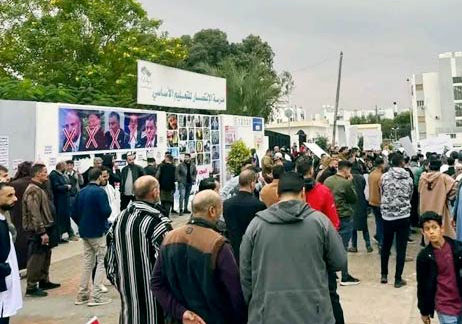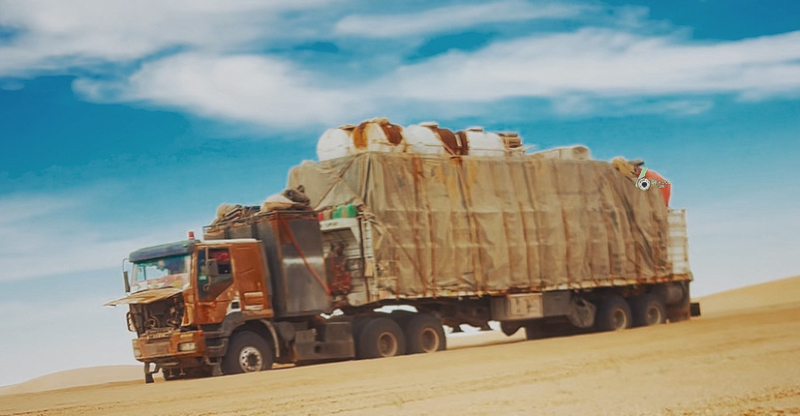
Libya’s three historic regions
Updated on Monday 17 July 2023
Libya’s oil sector is currently facing a precarious situation which is marked by escalating tensions and a heated debate among the country’s main stakeholders. Talks of potential political deals and the prospect of holding elections by the end of the 2023 have now faded into the background. They have been overshadowed by the allegation that Tripoli’s incumbent Government of National Unity (GNU) is continuing to marginalise eastern and southern Libya. This has led to renewed threats from the Libyan Arab Armed Forces’ (LAAF) General Command which has increased the fear that Libya could once again degenerate into civil war. The eastern based House of Representatives (House) and the Tripoli based High Council of State (HCS) have responded by presenting a new paper which details their preferred roadmap for elections and Libya’s political future. This has both exacerbated the crisis and increased uncertainty.
The issue of the ‘just distribution of wealth’ has recently taken centre stage both domestically and internationally. It has reignited the seemingly endless sensitivities surrounding the perceived lack of fairness and transparency in the allocation of resources between its three historic regions: the west’s Tripolitania; the east’s Cyrenaica; and the south’s Fezzan. The LAAF leader, Khalifa Haftar, has emphasised that the majority of the country’s hydrocarbon infrastructure — including the main oil and gas wells, pipelines, pumping stations and export terminals — are controlled by his forces with the support of mercenaries from Russia’s Wagner Group
During a 3 July meeting in Benghazi Haftar called for the establishment of a supreme committee that would be responsible for managing the country’s financial revenues. He set a 1 September deadline for it to begin its work and hinted that there could be a military intervention if it stalled. Haftar also criticised certain foreign ambassadors and, in particular, the US Ambassador and Special Envoy, Richard Norland. He denounced the alleged corruption by the Tripoli-based state institutions, and cited international reports which had estimated that corruption-related losses exceeded LD200 billion (US$41 billion) over a two-year period, and included misconduct within the Central Bank of Libya (CBL).
Throughout the past few years, Haftar’s actions have continuously blurred the lines between military and civilian governance without any adherence to established legal and institutional frameworks, and have undermined the authority of the incumbent institutions. It is therefore ironic that he has taken it upon himself to call for financial reforms and has set deadlines for their implementation.
Haftar — via his long-term supporter, Osama Hammad, who now heads the eastern-based parallel Government of National Stability — threatened to halt oil and gas exports (Libya Politics & Security – 03.07.23). In a related development, the Court of Appeal’s Administrative Judicial Department in Benghazi rejected an appeal filed by the National Oil Corporation (NOC) against Hammad’s decision to administratively seize its oil revenues and accounts in the Libyan Foreign Bank (LFB). In addition to the Tobruk-based House forming a committee to restructure budget allocation, this latest move which is supported by Haftar is another challenge to the authority of the GNU.
The GNS’ deputy premier, Ali al-Qatrani, echoed Haftar’s stance which he claimed reflected the Libyan peoples’ demand for equitable wealth distribution between the country’s individuals, cities, and regions. The NOC is the country’s only legitimate oil producer and supplier, and the resultant revenues are then channelled through the Central Bank of Libya (CBL) after a maximum of 48 hours in the NOC’s account at the LFB. The central bank has continued to disburse salaries to government employees including soldiers and fighters on both sides of the conflict in eastern and western Libya.
Despite facing criticism, Norland expressed satisfaction with the discussions sparked by his recent talks with Libyan leaders. He acknowledged that the perceived inequitable distribution of Libya’s oil revenues is a significant factor in contributing to the conflict. Despite this he reaffirmed Washington’s ongoing support for the incumbent political bodies in establishing a transparent and accountable mechanism for managing revenue allocation.
Update – 17 July 2023
On 13 July three of the largest oil fields in the southwest’s Murzuq Basin were temporarily blockaded by the Zwiya tribe in response to the abduction in Tripoli of their kinsman and former finance minister, Faraj Bu Matari, which has led to domestic and international concerns. The oil ministry warned of the potential declaration of force majeure on 14 July because of the blockade’s significant impact on oil production. However, the following day, it announced a gradual resumption of the oil facilities’ operations.
The current fuel and electricity shortages in Tripolitania are likely to exacerbate tensions which will play into the hands of Khalifa Haftar and his allies. Despite Bu Matari’s release, given the political climate, the oil blockades may be resumed and prolonged at any moment. Many believe that this raises suspicions about the true motives behind the actions and suggest that Haftar may be involved. It is widely recognised that it was not tribal leaders who ordered the shutdown and that instead it was Haftar who orchestrated it in order to exert pressure on the incumbent Tripoli-based Government of National Unity (GNU).
This excerpt is taken from our Libya Politics & Security weekly intelligence report. Click here to receive a free sample copy. Contact info@menas.co.uk for subscription details.


